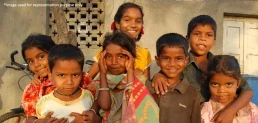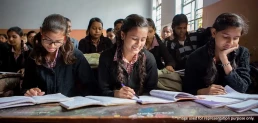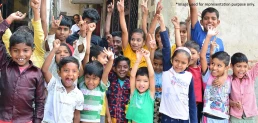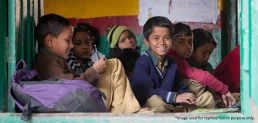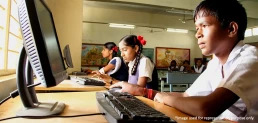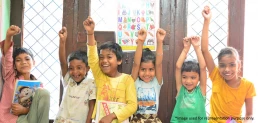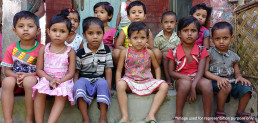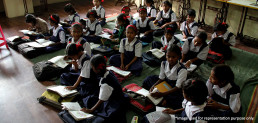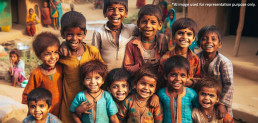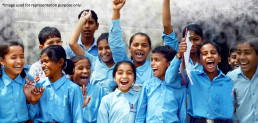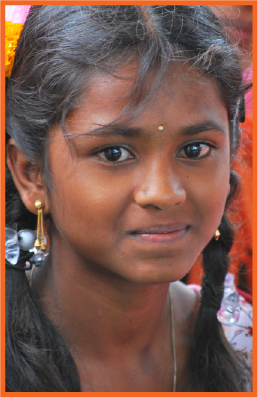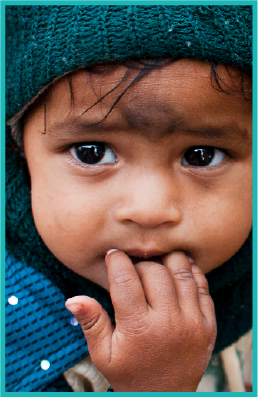Developing countries often rely heavily on traditional education, children primarily engage in rote learning and theoretical knowledge. While these aspects are important, they don’t always prepare children for real-world challenges. This is where skill-based education plays a significant role in shaping these children’s futures. By providing life skills, we can help them build a foundation for personal growth and economic independence.
In today’s blog, let’s explore the importance of skill-based learning, the key components of life skills, and the role of governments and NGOs in promoting skill-based education in marginalized areas.
What is skill-based education?
Skill-based education emphasizes the development of practical and applicable skills that go beyond textbooks. It focuses on real-world competencies such as communication, teamwork, critical thinking, problem-solving, and technical skills that are essential in helping children adapt to challenges and excel in various aspects of life.
Importance of skill-based education
1. Bridging the learning gap: Underprivileged children often face disrupted career paths due to low-income levels and frequent dropouts from mainstream schooling. Skill development programs, such as vocational training, life-skill sessions, computer literacy, and language skills, offer practical education and hands-on training, bridging this educational gap and making them more employable.
2. Encourages informed decisions with critical thinking: Skills such as problem-solving, financial literacy, and effective communication empower underprivileged children to think critically and make informed decisions paving the way to independent living.
3. Fosters confidence and self-esteem: Dreams and aspirations can only flourish when individuals possess skills, they are confident in applying. This confidence comes from education, knowledge, and hands-on training. Skill-based learning fosters resilience and helps children envision a brighter future for themselves.
4. Ensures child protection: Skill development programs offer underprivileged children an alternative to child labor and early marriage by teaching marketable skills. These programs build their capacity for future employment, protecting them from exploitation and the consequences of child marriage by guiding them toward dignified and empowering roles in the workforce.
5. Teaches adaptability: Skill-based education equips children with versatile skills that can be applied in various scenarios. Whether it’s learning digital skills, communication techniques, or vocational trades, these skills ensure that children can thrive even when faced with uncertainty.
Key components of life skills education
Due to disrupted learning, education often becomes easier to acquire when life skills act as complementary learning for underprivileged children. Some of the most important life skills for students include:
- Communication skills: The ability to express thoughts clearly, both verbally and in writing. Effective communication helps children advocate for themselves and connect with others.
- Critical thinking and problem-solving: Teaching children how to think critically and solve problems independently equips them to handle real-world challenges.
- Financial literacy: Understanding the basics of budgeting, saving, and managing money can help children make informed financial decisions.
- Vocational skills: Skills like carpentry, driving, kitchen gardening, tailoring, or computer literacy can open up job opportunities for children who may not have access to higher education.
- Teamwork and collaboration: Learning to work with others helps children develop social skills and succeed in group settings, whether in school, learning centers, or their communities.
Role of government and NGOs to drive skill-based education
Governments and NGOs act as powerful mediums to facilitate and provide access to skill-based learning. Together, they create scalable initiatives to reach underserved communities worldwide.
Role of government: Governments worldwide are increasingly acknowledging skill development initiatives as key tools for reducing poverty and promoting economic growth. With programs like Pradhan Mantri Kaushal Vikas Yojana (PMKVY), an initiative aimed at offering short-term skill development courses in areas such as construction, healthcare, and IT, the government of India is continuously working to empower its youth.
Role of NGOs: While government programs exist, NGOs ensure that marginalized communities are aware of and have access to these government programs. According to a 2024 Press Release from the Press Information Bureau, 1.42 crore individuals have participated in the PMKVY program, with the participation of women increasing from 42.7% in 2016 to 52.3% in 2024. Besides this, ways an NGO can contribute to skill-based learning include:
- Workshops and training programs: Offering practical workshops that teach vocational and digital skills.
- Community engagement: Working with families and communities to emphasize the importance of skill-based education.
- Mentorship programs: Providing role models from the community and mentors who guide children through their educational journeys.
Also Read: Impact of Non Profit Organizations on Empowering Children
CRY America’s role in skill development for students
CRY America’s education-focused projects support underprivileged children by providing them with practical skills through life skills education, empowering them to become self-reliant and build a better future. Some of the key initiatives of CRY America’s projects include:
- Linking children and adolescents with government programs: Ensures access to skill-based government programs for marginalized families by raising awareness and helping them avail the benefits of such programs.
- Child Activity Centers: Fosters life skill sessions that encourage children to think critically, communicate to express their views, and participate in group activities with informed decisions.
- Vocational training: Conducts vocational training in areas such as digital literacy, driving, tailoring, and gardening, ensuring sustainable employment opportunities in underserved areas.
- Sports coaching: An effective initiative, CRY America’s projects focusing on education, sometimes offer sports coaching to teach children discipline, and perseverance, besides learning the sport. This helps children focus on their studies while developing practical skills on the field.
CRY America making a difference with skill-based education
While working with project Doaba Vikas Evam Utthan Samiti (DVEUS) in Uttar Pradesh, the team came across a girl who dropped out of school after 2nd standard due to her family’s financial struggles. Her family’s low income and the long distance to school forced her to put her education on hold.
With CRY America’s intervention, her mother was counseled on the importance of education, and she was enrolled in CRY’s Child Activity Center to attend bridge classes. She was then re-enrolled in 3rd standard by the project team, and now, she aspires to become a police officer.
Conclusion
Imparting skill-based education is important for the overall development of children. For example, digital literacy has come a long way, thanks to the efforts of government programs, and NGOs like CRY America, which ties all the efforts of attaining skill-based education into one thread. While India has made notable progress over the last decade in fostering skill-based education, the journey is far from over. It is achievable with the continuous support of government efforts, NGO drives, and your unwavering support.
By supporting CRY America, you can make a direct difference in the lives of underprivileged children by empowering them with skill-based education. Donate today and become a beacon of hope for a better tomorrow.
Recommended for you












